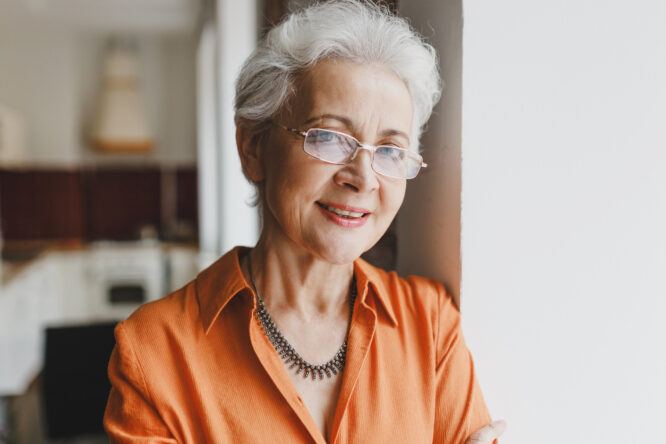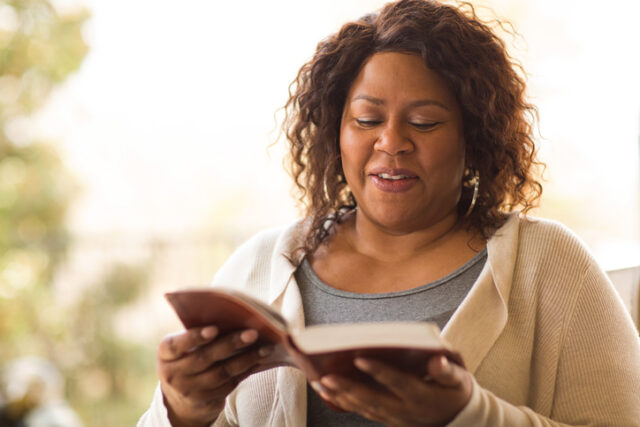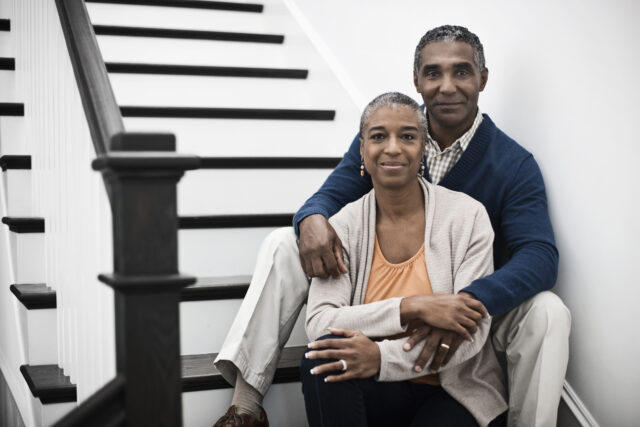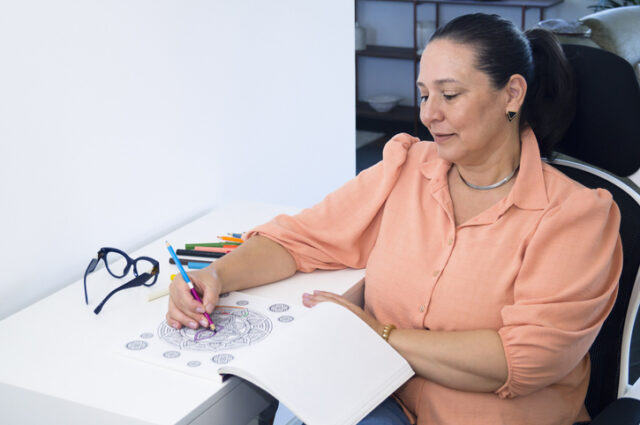Most people see getting older as an inevitable — and inevitably miserable — part of life.

However, ageing is actually a blessing. Think of just how many people aren’t fortunate enough to ever make it that far, for whatever reason. They miss out on all the amazing things that later life can bring — and yes, there are many. While there are obviously some downsides that come with getting older, a lot of the experience really does come down to attitude. Here’s how to start embracing your advanced years and find peace with the fact that eventually, we all get old (if we’re lucky).
1. Reflect on the wisdom you’ve gained.

Age brings experience, and with experience comes wisdom. The lessons you’ve learned over the years — whether through challenges, successes, or even failures — are invaluable. Reflecting on how much you’ve grown and what you’ve overcome can help you appreciate the journey. Think about the advice you’d give your younger self, and recognise how far you’ve come. Reminding yourself of your resilience and the knowledge you’ve gained can help you view ageing as a badge of honour rather than something to fear.
2. Focus on your health and wellness a bit more.

Getting older is a chance to prioritise your health in ways that support longevity and vitality. Staying active, eating well, and listening to your body’s needs can help you feel your best at any age. You can’t reverse time, but you can find ways to be as healthy as possible in the present. Find activities you enjoy, whether it’s walking, yoga, or dancing, and make them part of your routine. Small, consistent efforts toward health can boost your energy and help you feel more confident as you age.
3. Redefine your idea of beauty.

Society often equates beauty with youth, but real beauty lies in authenticity, confidence, and how you carry yourself. Embracing natural changes, like grey hair or laugh lines, can be empowering and a reminder of the life you’ve lived. Celebrate the features that make you unique and focus on what makes you feel good. Whether it’s experimenting with a new style or simply smiling more, redefining beauty on your own terms can help you appreciate yourself at every stage.
4. Surround yourself with supportive people.

Having a strong support system can make all the difference in how you view ageing. Being around people who value and uplift you creates a positive environment where you can thrive, no matter your age. Pursue friendships with those who inspire and encourage you. Whether it’s a close friend, family member, or community group, connecting with people who share your values can make you feel more confident and supported.
5. Find your “why” and live with a sense of purpose.

Having a sense of purpose is one of the most fulfilling parts of life, and it doesn’t diminish as you age. Whether it’s pursuing a hobby, volunteering, or mentoring people, finding something meaningful to focus on keeps you engaged and motivated. Think about what excites or inspires you and make time for it. Contributing to something bigger than yourself not only benefits other people, but also gives you a renewed sense of purpose and joy.
6. Show yourself kindness, compassion, and grace.

It’s easy to be critical of yourself as you notice the changes that come with ageing, but self-compassion can help you accept these changes with kindness. Treat yourself with the same care and understanding you’d offer a friend. When negative thoughts creep in, counter them with reminders of your strengths and accomplishments. Practising gratitude for your body and all it does for you can shift your perspective and help you appreciate the stage of life you’re in.
7. Never stop learning new things.

Age doesn’t have to mean slowing down — it’s the perfect time to explore new interests and develop new skills. Whether it’s taking a class, learning a language, or picking up a hobby, keeping your mind active helps you stay curious and engaged. Lifelong learning isn’t just about acquiring knowledge; it’s about expanding your horizons and staying connected to the world around you. Challenging yourself intellectually can make ageing feel like an exciting new chapter.
8. Celebrate your achievements.

Take time to acknowledge the milestones and accomplishments you’ve reached over the years. From career successes to personal growth and meaningful relationships, these achievements are a testament to the life you’ve built. Write down the things you’re proud of and revisit them when you’re feeling uncertain about ageing. Recognising your accomplishments reinforces your sense of worth and reminds you of how much you’ve contributed to the world.
9. Prioritise experiences over possessions.

As you get older, the value of experiences often outweighs the importance of material things. Focusing on creating memories, whether through travel, spending time with loved ones, or trying new activities, brings more joy and fulfilment than accumulating possessions. Plan experiences that excite you, even if they’re small, like a day trip or a simple dinner with friends. These moments create lasting happiness and make the ageing process feel more vibrant and meaningful.
10. Make thankfulness a part of your daily life.

Gratitude is a powerful tool for shifting your mindset and finding contentment. Taking time to appreciate what you have, rather than focusing on what you’ve lost, can help you approach ageing with positivity and acceptance. Start or end your day by writing down three things you’re grateful for. These can be big or small — anything from a supportive friend to a beautiful sunset. Gratitude helps you focus on the present and feel more connected to your life as it is.
11. Stay socially connected.

Maintaining relationships is vital as you age, but it’s easy to let social connections slip with busy schedules or changing circumstances. Staying connected to people brings a sense of belonging and can make getting older feel less isolating. Reach out to friends, join local groups, or even try connecting online through communities that share your interests. Strong social ties can improve your overall wellness and make you feel more supported through life’s changes.
12. Take care of your mental health.

Your mental health is just as important as your physical health, especially as you age. Stress, anxiety, or feelings of loneliness can make the ageing process feel more daunting, but addressing these challenges head-on can help you feel more at peace. Whether through therapy, meditation, or simply talking to a trusted friend, prioritising your mental health can help you navigate this stage of life with clarity and calmness. Remember, seeking support is a sign of strength, not weakness.
13. Redefine ageing as a privilege.

Again, not everyone gets the chance to grow older, and recognising this can really transform how you view the process. Each year is a gift that brings opportunities for growth, connection, and self-discovery. Rather than seeing ageing as something to avoid, embrace it as a testament to the life you’ve lived. Changing your perspective can help you approach each stage with gratitude and enthusiasm rather than fear.
14. Find joy in the present moment.

Ageing often brings a greater appreciation for the here and now. Learning to live in the moment, rather than worrying about the past or future, can help you fully enjoy life’s small pleasures, no matter your age. Practising mindfulness, whether through meditation, journaling, or simply pausing to notice your surroundings, keeps you grounded. Finding joy in the everyday helps you embrace the ageing process as a natural and beautiful part of life.




